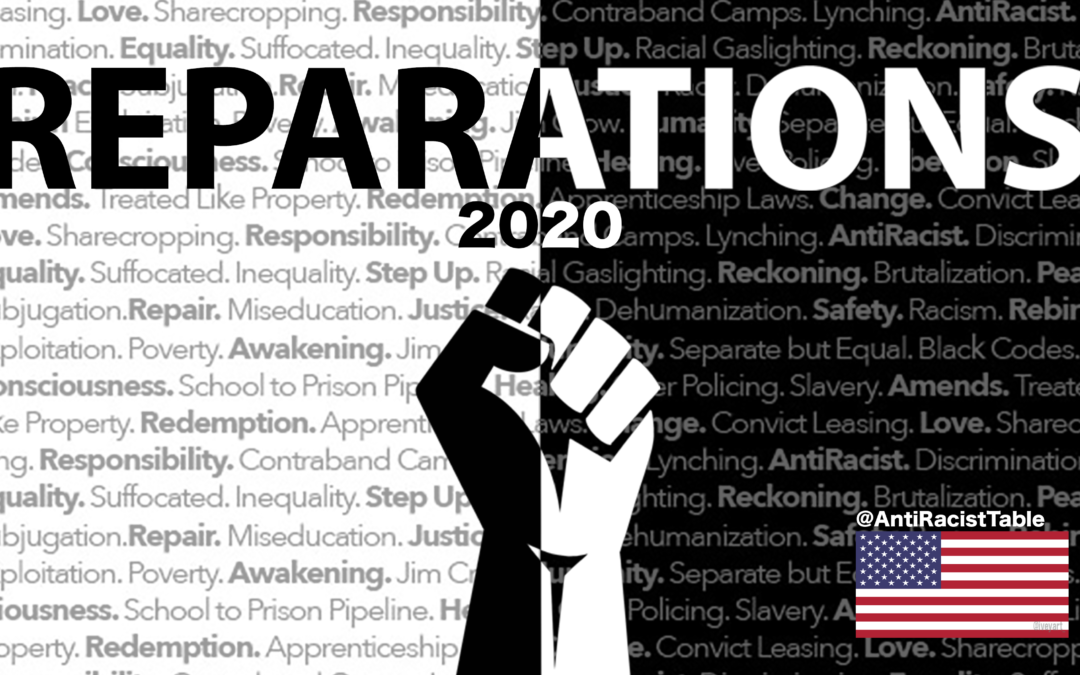An AntiRacist policy is one that creates equity. Ibram X. Kendi, PhD, the leading scholar on AntiRacism and author of How to be An AntiRacist, says that reparations is an AntiRacist policy.
In his article, There Is No Middle Ground on Reparations, Dr. Kendi says:
Racist policies have historically compensated people for their whiteness and extracted wealth from people because of their blackness. But Americans occupying the middle ground do not attack these policies like they attack reparations. They support (what they don’t call) reparations for white people at the same time they oppose reparations for black people….How does the United States close the growing racial wealth gap without reparations?
Nearly all Americans claim to be not-racist, but the so-called not-racists are usually not up to supporting a policy that can create racial equity.
Reparations is not my litmus test for presidential candidates. But it is a litmus test for whether a person is being a racist or anti-racist when it comes to one of the most damaging racial inequities of our time, of all American time—the racial wealth gap. To oppose reparations is to be racist. To support reparations is to be anti-racist. The middle ground is racist ground. It is occupied by people passively doing nothing in the face of racial inequity, or actively supporting policies that reproduce racial inequity. The anti-racist approach requires standing up for the policies, like reparations, that can create racial equity.
Here are a three ways you can support reparations:
- Read our Petition and each of the embedded links in the description. If you agree with the Petition, sign it.
- Demand candidate platforms on reparations.
- Contact your representative.
- Share the above mentioned links with a friend.

